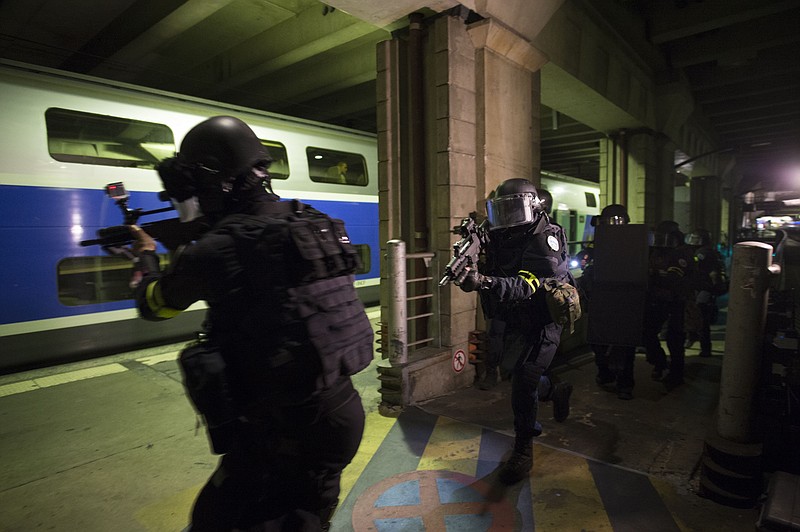PARIS (AP) - France's government is calling for a two-month extension of the state of emergency that was declared after the deadly Nov. 13 attacks in Paris, the country's prime minister said Wednesday. The move, which will require parliament's approval, is intended to cover the European Championship soccer tournament and the Tour de France.
Prime Minister Manuel Valls told France Info radio that the extension of the state of emergency until the end of July will "allow a better response against the terrorist threat" during the June 10-July 10 tournament.
Following attacks in Brussels last month, concerns have been raised that Euro 2016 could be targeted, especially the fan zones where spectators gather to watch games on large screens. Up to 8 million fans are expected to visit the open-air areas, according to French authorities. Tournament organizers have increased the budget for security by 15 percent.
"We must ensure full security" so that Euro 2016 can "be at the same time a celebration with full stadiums and full fan zones," Valls said.
Valls said the state of emergency will also cover the July 2-24 Tour de France cycling race.
The state of emergency, which has already been extended twice, had been scheduled to end on May 26. It expands police powers to carry out arrests and searches and allows authorities to impose restrictions on the movement of people or vehicles.
The measure has been criticized by human rights groups as damaging democracy.
Government spokesman Stephane Le Foll said the state of emergency has been applied in a more "focused" and "proportionate" manner in recent weeks.
Police have carried out 3,427 raids and searches from Nov. 13 to Feb. 26 and only 122 since then, he detailed. In total, 743 weapons have been seized. The number of people placed under house arrest has decreased from 344 in the period following the attacks to 69 persons now.
France remains on high alert. Overnight Tuesday, elite French emergency police units staged an exercise at Paris' Montparnasse station, with heavily armed officers pouring across the concourse and sweeping rail platforms as part of a hostage scenario.
Meanwhile on Wednesday, a Belgian official said that Osama Krayem, a suspect in the Brussels attacks, has also been charged with terrorist offenses in relation to the Paris attacks.
Krayem is already suspected of being an accomplice of the attack on the Brussels subway, one of two deadly bombings that hit the city on March 22. Belgian Federal Prosecution Office spokesman Thierry Werts said that Krayem, a 23-year-old Swedish national, has been charged with "participation in terrorism" and "terrorist murders."
___
Raphael Satter contributed to this report.
